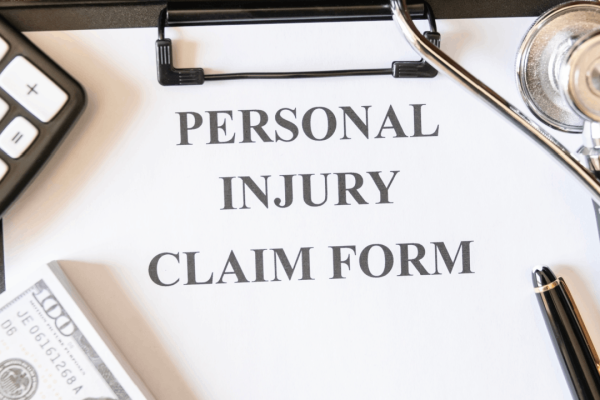
What Is a Good Settlement Figure? Your Complete Legal Guide
What Is a Good Settlement Figure
What is a good settlement figure varies significantly based on your case’s unique circumstances, but understanding key factors helps you evaluate fair compensation. A good settlement figure typically covers your actual damages while accounting for case strength, legal costs, and negotiation leverage. Most personal injury settlements range from three to five times medical expenses, though complex cases may warrant higher amounts.
Settlement figures depend on provable damages, liability clarity, and your attorney’s negotiation skills. Insurance companies often start with low offers, expecting counteroffers that lead to reasonable middle ground. The Consumer Financial Protection Bureau provides resources on understanding financial settlements and consumer rights during legal proceedings.
Damage Assessment Guide: Calculating Your Settlement Value
Your settlement figure should reflect both economic and non-economic damages. Economic damages include medical bills, lost wages, property damage, and future treatment costs. These concrete expenses form your settlement’s foundation and are easily documented through bills, pay stubs, and expert testimony.
Non-economic damages cover pain and suffering, emotional distress, and loss of life enjoyment. Courts often use multiplier methods, applying factors of 1.5 to 5 times economic damages based on injury severity. Permanent disabilities, chronic pain, and life-altering injuries justify higher multipliers.
Medical Expense Calculations
- Current medical bills and treatment costs
- Future medical care projections
- Rehabilitation and therapy expenses
- Medical equipment and modification needs
Lost Income Considerations
- Missed work during recovery
- Reduced earning capacity
- Lost promotion opportunities
- Retirement benefit impacts
Case Strength Factors: What Influences Settlement Amounts
Strong cases with clear liability typically achieve higher settlement figures than disputed claims. Your case strength depends on evidence quality, witness credibility, and defendant’s fault percentage. Cases with overwhelming evidence and minimal contributory negligence often settle for full value.
Insurance adjusters evaluate policy limits, legal precedents, and trial risk when determining offers. They consider your attorney’s reputation, case preparation quality, and willingness to proceed to trial. Well-documented cases with expert witnesses command higher settlements than poorly prepared claims. The National Highway Traffic Safety Administration (NHTSA) maintains crash databases that attorneys often reference when evaluating vehicle accident settlement values.
Evidence That Increases Settlement Value
- Police reports establishing fault
- Medical records documenting injuries
- Witness statements supporting your account
- Expert testimony on damages and causation
Negotiation Strategy Methods: Maximizing Your Settlement Figure
Effective settlement negotiations require patience, preparation, and strategic timing. Rushing to accept initial offers often results in inadequate compensation, while excessive demands can stall productive discussions. Your attorney should present comprehensive demand packages outlining all damages with supporting documentation.
Settlement timing affects final amounts significantly. Early settlements may undervalue future complications, while delayed negotiations can increase medical costs and lost wages. Most cases settle after discovery completion but before trial preparation intensifies.
Successful Negotiation Tactics
- Document all damages thoroughly
- Obtain independent medical evaluations
- Research comparable case settlements
- Present organized demand packages
- Remain patient during counteroffers
Legal Professional Guidance: What Is a Good Settlement Figure Assessment
Experienced personal injury attorneys evaluate settlement fairness using case databases, local jury verdicts, and insurance company patterns. They compare your damages to similar cases while considering unique factors that might increase or decrease value. The Department of Justice publishes legal guidelines and case precedents that help establish fair compensation standards across different types of civil claims.
Attorney contingency fees typically range from 33% to 40% of settlements, making their success directly tied to maximizing your recovery. Quality legal representation often results in settlement figures that exceed what individuals achieve independently, even after attorney fees.
Settlement Decision Timeline: When to Accept or Reject Offers
Accept settlement offers when they adequately compensate your damages and avoid trial uncertainties. Reject offers that fail to cover medical expenses, ignore future complications, or undervalue pain and suffering significantly. Consider your case’s trial potential against guaranteed settlement amounts.
Trials carry risks including defense verdicts, reduced awards, and increased costs. However, strong cases with sympathetic facts may justify trial risks when settlement offers remain inadequate.
Protect Your Rights: What Is a Good Settlement Figure Action Plan
Don’t navigate settlement negotiations alone when significant damages are involved. Contact our experienced personal injury attorneys who understand local settlement values and insurance company tactics. Free consultations help you understand whether current offers reflect fair compensation for your injuries and losses.
Frequently Asked Questions
1. What percentage of medical bills makes a good settlement?
Settlement figures typically depend on the severity of injuries, medical expenses, pain, suffering, and future complications. These factors are considered to determine fair compensation.
2. How long do settlement negotiations usually take?
Most personal injury settlements occur within 6-18 months after maximum medical improvement, allowing adequate time for damage assessment and negotiation rounds.
3. Should I accept the first settlement offer?
Initial settlement offers rarely represent fair compensation and typically serve as starting points for negotiations. Most cases require multiple counteroffers to reach adequate settlement figures.
4. What happens if I reject a settlement offer?
Rejecting settlement offers allows continued negotiations or trial proceedings. However, future offers aren’t guaranteed to exceed rejected amounts, making careful evaluation essential.
5. Can settlement amounts be negotiated after signing?
Signed settlement agreements are typically final and cannot be renegotiated. Ensure you understand all terms and future implications before accepting any settlement figure.
Key Takeaways
- Settlement figures should cover all economic and non-economic damages comprehensively
- Case strength, evidence quality, and legal representation significantly impact settlement amounts
- Medical expenses are a key factor in determining settlement figures, which depend on injury severity, future complications, and other factors.
- Early settlement offers rarely represent fair compensation and require negotiation
- Experienced attorneys help evaluate settlement fairness and maximize recovery potential
Free Accident Claim Review
Complete the form to have an attorney review your accident claimCOMPLETE THE FORM TO BE CONNECTED WITH AN ACCIDENT ATTORNEY
No Matching Partners at the Moment
Thank you for your inquiry but there are no matches for you at this time. Please come back later and try again.
Recent Posts
- What Are Signs of a Good Settlement Offer From Insurance Companies?
- What Do Lawyers Charge for Personal Injury Claims? Fee Structure Guide
- How Much Do Most Personal Injury Cases Settle For in 2025?
- What Should I Expect From My Personal Injury Lawyer During Your Case?
- What Is the Role of a Personal Injury Lawyer in Your Accident Claim?
Archives
- January 2026
- December 2025
- November 2025
- October 2025
- September 2025
- August 2025
- July 2025
- June 2025
- May 2025
- March 2025
- February 2025
- January 2025
- October 2024
- September 2024
- August 2024
- July 2024
- June 2024
- May 2024
- April 2024
- March 2024
- February 2024
- January 2024
- December 2023
- November 2023
- October 2023
- September 2023
- August 2023
- July 2023
- June 2023
- May 2023
- March 2023
- February 2023
- January 2023
- November 2022
- October 2022
- September 2022
- August 2022
- May 2022
- April 2022
- March 2022
- February 2022
- January 2022
- December 2021
- November 2021





